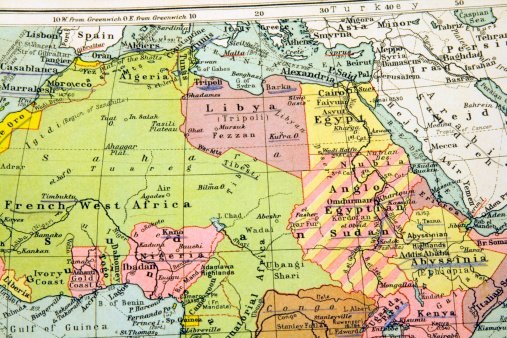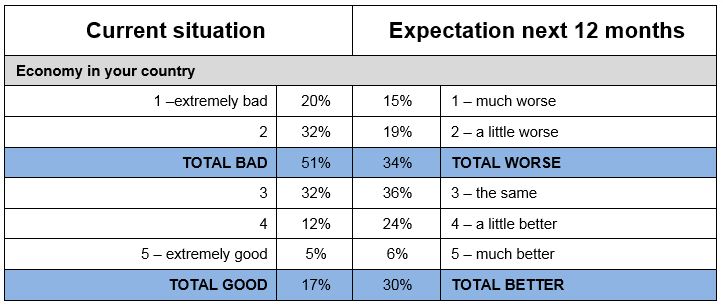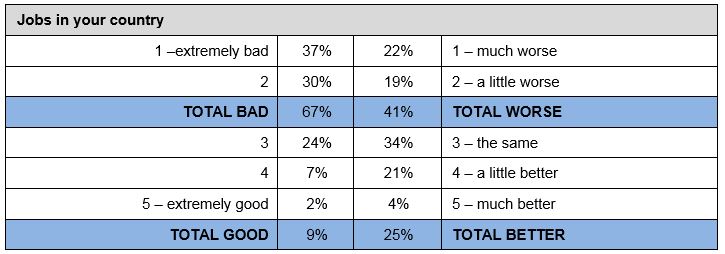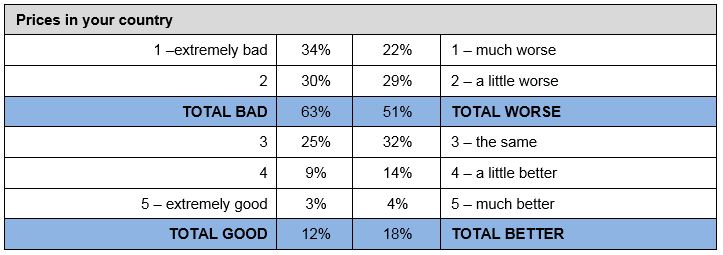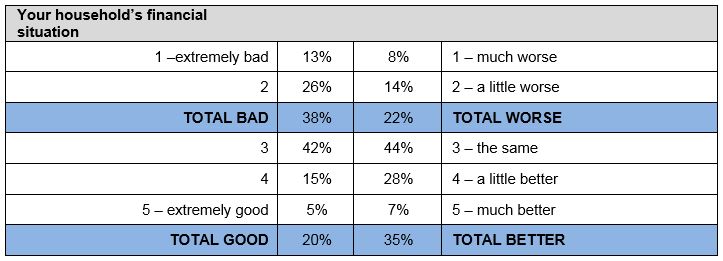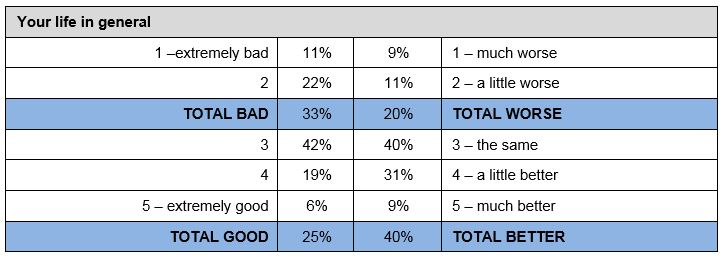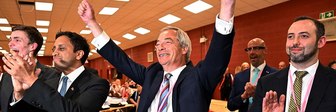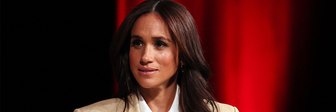Large numbers share a sense of progress and optimism politically but are still united in heavy gloom over issues that first inspired the Arab uprisings – namely unemployment, the cost of living and economic stagnation. Meanwhile attitudes to religion and gender equality highlight the prevalence of political Islam and social conservatism in the development of Arab-Islamic modernity.
For centuries, the Maghreb was a geographical term more than a political one, describing a vast corner of Africa from Libya to the Atlantic and literally meaning the ‘West’ or ‘place of the setting sun’.
After the Second World War, governments in the region put new emphasis on political unity, culminating in the formation of an Arab Maghreb Union (UMA) in 1989 comprising Mauritania, Morocco, Algeria, Tunisia and Libya.
The UMA was meant to promote regional trade and political ties but quickly stalled over Moroccan-Algerian rivalry and protracted conflicts, most notably the Algerian Civil War and disputes over the Western Sahara.
Now after decades of inaction, events since 2011 have helped to revive the impetus for cooperation in the face of new challenges to the region as a whole, including the push for democratic reform, sustained economic malaise and the rise of al Qaeda-linked militancy across both the Maghreb and Sahel.
As part of the YouGov-Cambridge Programme, which provides leading academics and their students with unique access to panel-based survey research, YouGov recently conducted a study of public opinion in the Maghreb in collaboration with two Cambridge students: Laura Weidinger, an undergraduate reader in politics, and Zoe Petkanas, a PhD candidate in international relations. The students provided the initial questionnaire, which was then developed and fielded in conjunction with YouGov researchers in the London and the Middle East offices.
It should be noted this was not a representative sample: 1228 respondents were interviewed including 520 in Algeria, 503 in Morocco and 205 in Tunisia; three quarters were male; more than 60% had a university degree; almost half were between 25-34 years old and had a NET household income per month of $532 or under.
Notwithstanding, we see several trends in political and economic attitudes that transcend demographic and country groups.
A majority of respondents had a positive view about the direction of their country, at least politically.
• 62% said their country is moving in the right direction.
• Roughly half in each country described their political system as ‘fairly free’, compared with around a quarter saying the system is either ‘not very’ or ‘not at all’ free.
• 67% overall said people in their country had more freedom to criticise the government compared with three years ago.
• A larger 84% said people like them now have ‘the power to influence the decisions of government through elections’.
The direction of opinion in individual countries generally followed the overall sample but Tunisian respondents were consistently more positive about political issues, followed by those from Morocco and then Algeria (e.g. where 88% of Tunisian respondents said the freedom to criticise government has increased, 69% of Moroccan respondents said the same followed by 57% of Algerian respondents). The smaller size of the Tunisian sample warrants caution and any figures below 25% in the sub-sample are too small for analysis. But this ladder of optimism still correlates with events: Tunisia was the only country surveyed to see a revolution in the so-called Arab Spring. In Morocco, King Mohammed VI placated protesters – to an extent – by reforming the constitution and giving more power to Parliament and the Prime Minister. In Algeria, President Abdelaziz Bouteflika largely sidestepped the pressure to reform but pacified the public with numerous forms of economic and political largesse, including public sector pay-rises, food subsidies, the release of political prisoners and lifting a decades-old emergency law against demonstrations and political associations. These initiatives was also likely bolstered by an ingrained, public aversion to political violence after years of Algerian civil war.
Nonetheless, since Moroccan and Algerian regimes remained essentially intact, these results highlight a notable consistency in positive attitudes to democratic progress.
Fieldwork was conducted online between 2-17 July, 2013, with a total sample of 1228 adults, including 520 respondents in Algeria, 503 respondents in Morocco and 205 respondents in Tunisia.
Any political optimism sits in contrast, however, to a heavy sense of economic gloom
Respondents were asked to describe various areas of economic life on a scale of 1 to 5, where 1 means ‘extremely bad’ and 5 means ‘extremely good’. These areas included the economy, jobs, prices, household finances and life in general.
• Only 17% of respondents overall described the economy as good versus 51% calling it bad and 32% saying it was neither good nor bad. This included a larger 66% of Tunisian respondents saying calling it bad, along with 51% and 46% respectively in Moroccan and Algerian samples.
• 67% of all respondents described jobs in their country as bad, with comparable figures for each country sample (63% Algeria/ 69% Morocco/ 69% Tunisia).
• An equal 63% of all respondents described prices in their country as bad (including 63% Algeria/ 60% Morocco/ 73% Tunisia). Again, the figure for Tunisian respondents was notably higher.
Respondents showed less consensus on personal circumstances but hardly portrayed a positive outlook. 38% overall described their household finances as bad versus 20% saying good, with similar responses on life in general: 33% bad versus 25% good.
People were then asked to say in each case whether they expected these areas of life to get better or worse, or to stay the same, over the following 12 months.
As Table 1 shows, people show a measure of economic optimism – but not much.
• 34% expected the economy to get worse, compared with 36% saying it would stay the same and 30% predicting improvement.
• A larger 41% expected the situation for jobs in their country to worsen versus only 25% saying it would improve, with an even larger gap in predictions about prices: 51% worse versus 18% better.
Personal circumstances were seen in slightly more positive terms, with 22% saying household finances would worsen versus 35% expecting them to improve and 20% saying life in general would worsen versus 40% saying it would get better.
Again, these are not subjects on which attitudes fundamentally differ across the three countries surveyed. Accordingly, the uniformity in these results offers several conclusions:
First, people across the Maghreb share a certain level of common optimism about political progress and reform. The similarly large numbers of respondents from each country saying their country has become more free and is moving in the right direction suggests that at least some of the historic hopefulness of 2011 has survived.
Second, however, we see the two principles issues that inspired the Arab uprisings – namely prices and unemployment – still unite people across the region with a sense of pessimism and stagnation.
Table 1: How is the current situation / What are your expectations for the next 12 months in each of the following aspects?
Fieldwork was conducted online between 2-17 July, 2013, with a total sample of 1228 adults, including 520 respondents in Algeria, 503 respondents in Morocco and 205 respondents in Tunisia.
Attitudes to gender equality and religion in politics
The second part of this study looked at attitudes to social issues including gender equality and religion in politics.
Again the difference in sample sizes means comparison of male and female respondents must be treated with caution: the overall sample included 940 males and 288 females. We should also remember the sample has an urban, educated skew. With this in mind, results still suggest some interesting trends. For example, respondents were asked if men and women should be treated equally in life across a range of areas. Men and women generated exactly the same order of responses, with education being selected by the most respondents in each case (82% men/ 90% women), followed by ‘Freedom of speech’ (69% men/ 83% women), ‘Amount of wages’, (61% men/ 80% women) ‘Type of work’ (48% men/ 64% women), ‘Access to communal spaces’ (39% men/ 59% women), ‘Freedom to travel’ (34% men/ 54% women), ‘Access to evening social activities’ (21% men/ 33% women), and ‘Clothing / dress’ (14% men/ 19% women).
Fieldwork was conducted online between 2-17 July, 2013, with a total sample of 1228 adults, including 520 respondents in Algeria, 503 respondents in Morocco and 205 respondents in Tunisia, and including 940 male respondents and 288 female respondents in the overall sample.
It is also worth noting that while we see clear differences between male and female responses, these are not as stark as some Western observers might expect. For instance, When asked if it should be possible for a woman to become the national leader of their country, 57% of men said no versus 32% who said yes, reflecting the approximate balance in the overall sample (54% no versus 34% yes). Female respondents were divided on the question – 44% yes/ 44% no –but still showed a significant proportion rejecting the idea of a female premier.
In other examples, more female than male respondents disagreed with the suggestion that ‘a woman having a child outside of marriage is morally acceptable’, with 92% saying they disagree compared with 87% of men saying the same.
42% of female respondents said ‘a woman prioritising her career over starting a family is morally acceptable’, compared with 24% of men, but still roughly a third of women (30%) disagreed with the statement.
Female respondents were also divided on whether employers should give more priority to men finding jobs than women during hard times, with 41% of women saying employers should versus 43% saying the opposite.
Turning to the subject of religion and its role in politics, a 54% majority overall said religion had either a ‘fair amount’ or ‘great deal’ of influence on the politics of their country, with roughly similar percentages saying the same among Algerian and Moroccan respondents (48% and 52% respectively) and a much higher 74% among respondents from Tunisia (predictably given events since the revolution).
A further 59% overall said the level of influence for Islam in politics should increase versus only 18% saying it should remain the same and 10% saying it should decrease. Tellingly, younger respondents were significantly more likely to want a larger political role for Islam, with 67% of 16-24 year olds saying so, compared with 59% of 25-34 year olds, 54% of 35-44 year olds and 41% of those aged 45 and older (nb: caution small base size). Men (61%) were also more in favour of increased religious influence than women (51%).
Nearly three years on from the popular uprisings of North Africa and the Middle East, these results highlight what several observers noted at the time: namely that political reform in the Arab-Islamic world reflects the likely emergence of new Islamic brands of modernity, where religion and certain forms of social conservativism become integral to politics and the phenomenon of middle class expansion no longer occurs in lockstep with the spread of Western values.
